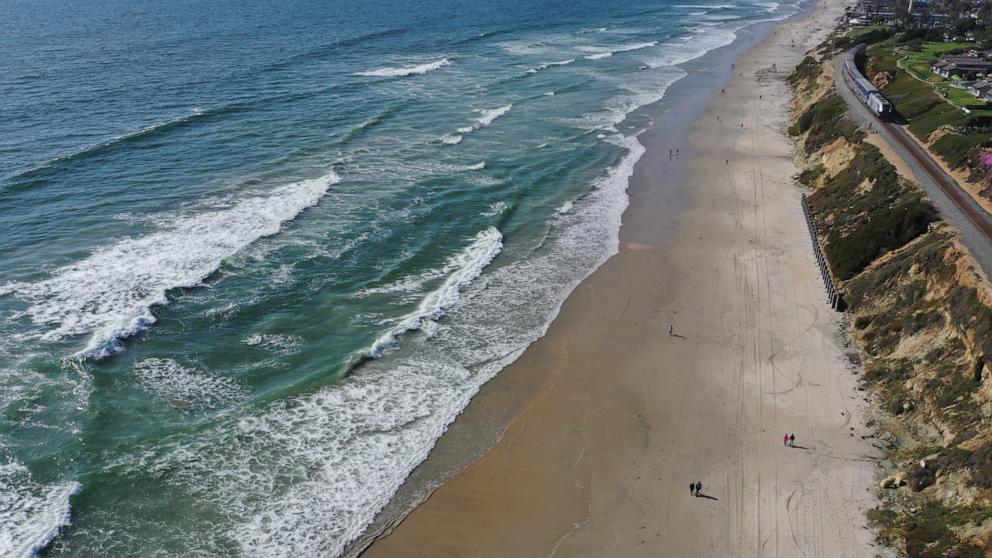


A 46-year-old man was left with "significant" injuries after being bit by a shark in Southern California on Sunday, officials said.
The victim was in a group of about a dozen ocean swimmers who meet regularly to train at Del Mar Beach, according to an alert from the city of Del Mar.
The incident occurred at approximately 9 a.m. PT, 100 yards offshore from the Beach Safety Center at 17th Street at Del Mar beach, the city said.
The victim was transported by ambulance to Scripps Memorial Hospital La Jolla with injuries including bites to the torso, left arm and hand, officials said, noting the injuries are "significant but not believed to be life-threatening." The man was in stable condition and receiving treatment for his injuries, a lifeguard told ABC News.
MORE: 24-year-old speaks out after falling into shark-filled marina: 'I got very lucky'Jon Edelbrock, director of community services and chief lifeguard for the city of Del Mar, told ABC News that the 46-year-old man "was conscious and oriented, relaying some information to the treating staff members" after the incident.
MORE: 10 people killed in unprovoked shark attacks last year, report finds"Our lifeguards noticed an individual being helped by others and they responded and provided immediate medical care," Edelbrock said.
Del Mar lifeguards closed the beach for swimming and surfing after the incident, and officials said the closure would extend through Tuesday at 9 a.m.
The last shark incident in the area was in Nov. 2022, when a 50-year-old woman survived an attack while swimming 200 yards offshore.
Following the attack, researchers from the Cal State Long Beach Shark Lab flew a drone for three hours around the bite site on Sunday and could not spot a single shark, Dr. Christopher Lowe told ABC News, saying they had a visibility issue.
The radar from previously tagged sharks showed some in the area, but the overcast sky, murky water and red tide made for very poor visibility for the drone, people and sharks, Lowe said.
Lowe explained that sharks in the area generally stay away from humans, knowing they are not suitable prey. However, the tide conditions may have caused the shark to bite the victim in a "case of mistaken identity" with another animal.